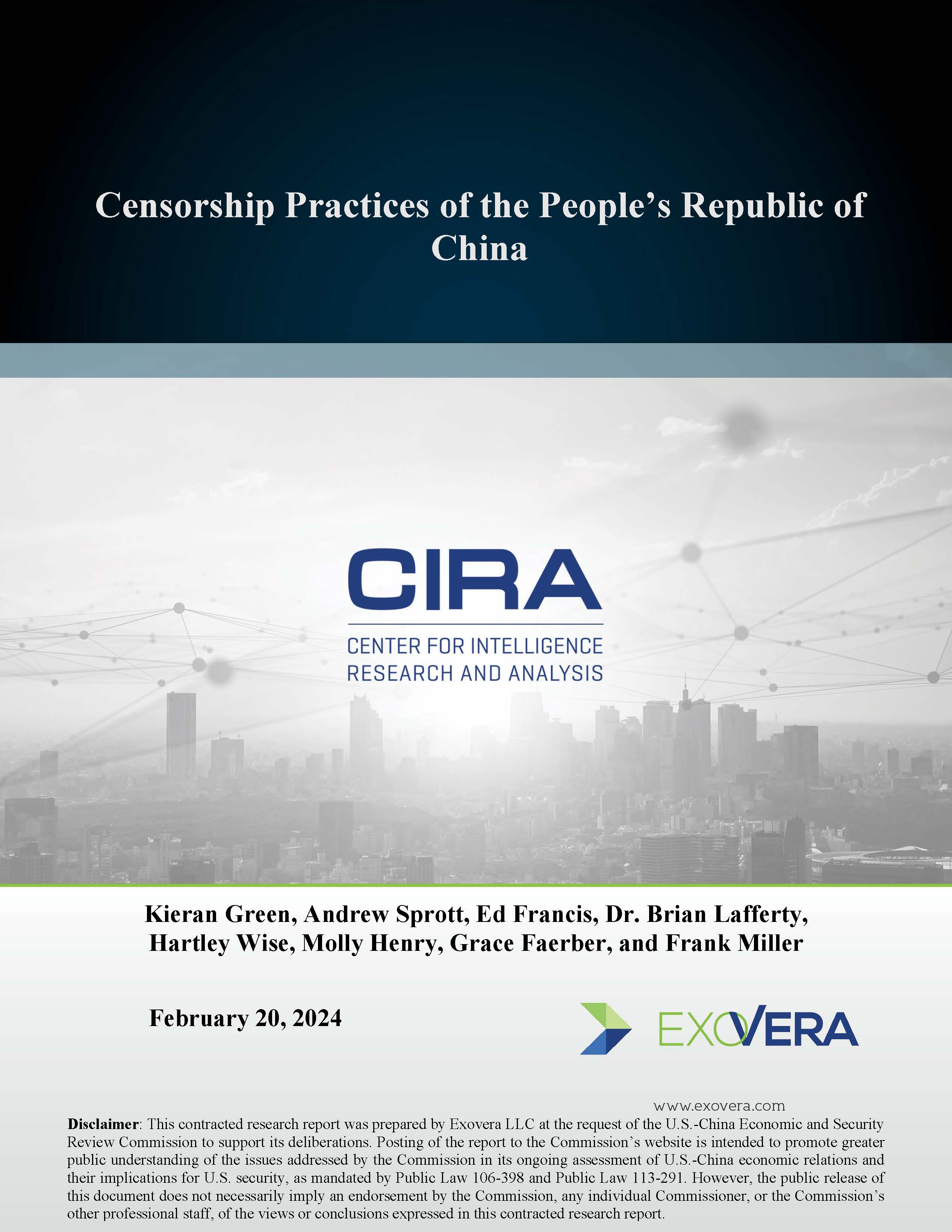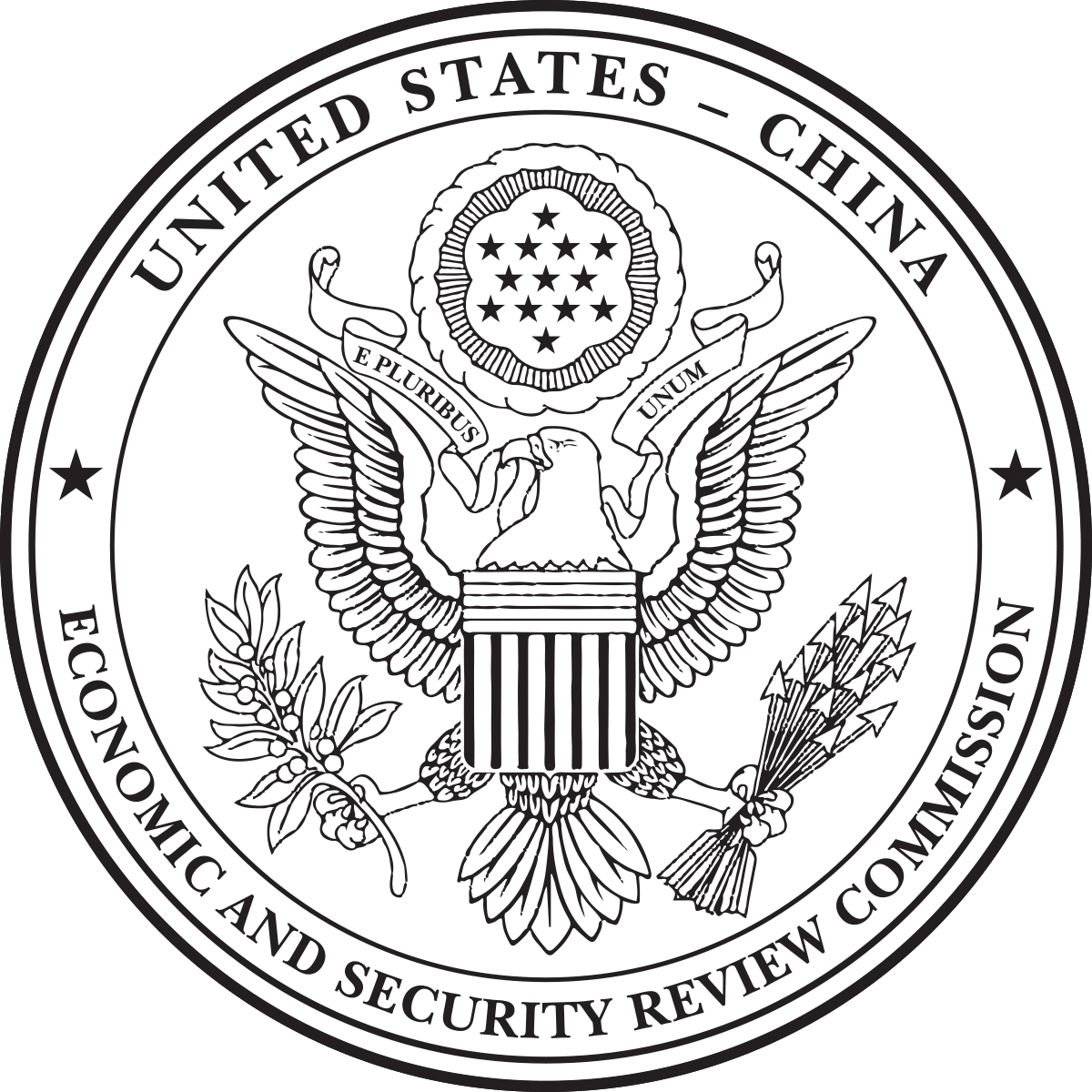02/20/2024

This report, prepared for the Commission by Exovera’s Center for Intelligence Research and Analysis (CIRA), examines the elaborate and pervasive censorship apparatus used by the People’s Republic of China (PRC) and the Chinese Communist Party (CCP) to maintain the Party's monopoly on political legitimacy, shape the behavior of China’s citizenry, and control information beyond its borders.
Some Key Findings Include:
- Under General Secretary of the CCP Xi Jinping’s rule, the Party has significantly expanded the scope and stringency of its censorship apparatus, with a particular focus on solidifying its control over internet content. At the same time, the CCP allows for limited discussions of sensitive topics that do not directly threaten its hold on power, such as China’s role in the ongoing Russia-Ukraine conflict.
- Despite the importance the CCP places on domestic information control, its censorship apparatus is unevenly developed and plagued by unfunded mandates. The PRC’s policy of assigning legal liability to internet service providers (ISPs) and private website owners has driven these entities to self-police and censor content posted on their platforms.
- Current Party guidance for internet content moderation stresses that deletion and blocking of posts should be a last-resort measure and that Party organs should instead focus their energy on proactive measures such as public engagement and “spreading positive propaganda.”
- PRC information operations frequently “flood the zone” on foreign social media platforms with irrelevant content designed to hijack or demobilize discussions of topics the Party deems to be sensitive, such as human rights abuses in Xinjiang and Tibet.
- The Party’s response to the COVID-19 pandemic demonstrated the flexibility and adaptability of its censorship apparatus during crisis scenarios. For example, at the outset of the pandemic, criticisms of local officials and mentions of whistleblower Li Wenliang were initially censored but were later co-opted and amplified by Party-state outlets after public outcry in order to boost the legitimacy of the CCP.
- The PRC actively seeks to censor international acknowledgements of Taiwan sovereignty in order to diplomatically isolate the island and lessen international willingness to intervene in a prospective cross-Strait conflict.
- The PRC is devoting considerable resources toward the development and fielding of advanced AI and big data analysis technologies for online content monitoring. Many of these AI-enabled “public opinion guidance” tools rely on off-the-shelf components imported from the United States, such as general processing units (GPUs) and cloud computing infrastructure.
